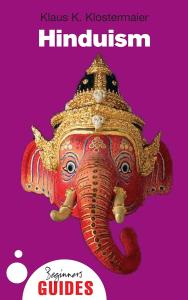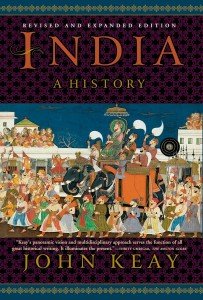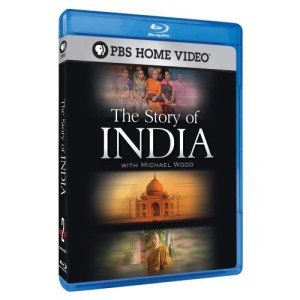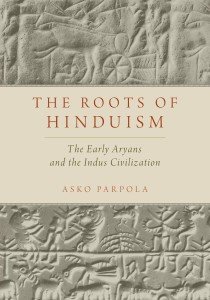Review of The Essentials of Hinduism by Swami Bhaskarananda
Illuminating the Foundations of the World's Oldest Religion
Swami Bhaskarananda's The Essentials of Hinduism: A Comprehensive Overview of the World's Oldest Religion, published by Viveka Press in 2002, is a thoughtful and meticulously organized work that offers readers a gateway to understanding Hinduism. Aimed at both beginners and those seeking a refresher, the book combines clarity, depth, and accessibility, making it a cornerstone reference for anyone curious about this profound and ancient faith.
An Elegant Structure for Complex Ideas
One of the book's most remarkable features is its structure. Swami Bhaskarananda breaks down Hinduism's vast and intricate philosophical, spiritual, and cultural traditions into digestible chapters. The book is systematically laid out, starting with the origins of Hinduism, its core tenets, and its evolution over millennia. It proceeds to explain the Vedas, Upanishads, and other holy scriptures, as well as the roles of gods, rituals, and practices in the lives of Hindus.
Swami Bhaskarananda, a monk of the Ramakrishna Order of India since 1958, studied under the scholarly monks of the Order for many years before being sent to the United States to head the Vedanta Society of Western Washington in 1974. He is also the spiritual head of the Vedanta Societies in Hawaii and Vancouver, Canada.
What sets this book apart is its ability to strike a balance between detail and simplicity. Swami Bhaskarananda avoids overwhelming the reader with technical jargon while still delving deeply into concepts such as karma, dharma, moksha, and the cycles of birth and rebirth. The clarity of his prose ensures that complicated philosophical ideas remain approachable.
Insights into the Texts and Traditions
Swami Bhaskarananda's treatment of Hindu scriptures is particularly enlightening. He highlights the Vedas as the foundational texts of Hinduism, explaining their divisions and purposes. He then transitions seamlessly into the Upanishads, which focus on metaphysical and spiritual meditations, and the Bhagavad Gita, perhaps the most widely known Hindu text today.
The author also explores the significance of epic literature, such as the Mahabharata and Ramayana, showcasing how these stories have shaped cultural values and spiritual thought not only in India but also across the world. The discussions are enriched with examples, anecdotes, and cultural contexts, making them relatable to readers from diverse backgrounds.
Gods, Goddesses, and Symbolism
Another strength of the book is its explanation of Hindu deities and their roles in everyday worship. Swami Bhaskarananda carefully elucidates the complex pantheon, from the mighty trinity of Brahma, Vishnu, and Shiva to beloved deities like Ganesha and Saraswati. The author delves into the symbolic meanings of these gods and goddesses, dispelling the common misconception that Hinduism is purely polytheistic. Instead, the text effectively conveys the idea of Hinduism's monistic underpinnings—that all forms and manifestations of divinity ultimately lead to one supreme reality, often referred to as Brahman.
Practical Insights into Hinduism's Role in Daily Life
What truly elevates The Essentials of Hinduism is the way it ties abstract philosophy to practical living. Swami Bhaskarananda makes it clear that Hinduism is not merely a religion but also a way of life. The book delves into day-to-day practices, such as prayer, fasting, festivals, and rituals, explaining their spiritual and cultural significance. He also dedicates space to the ashramas (stages of life) and varnas (social roles), providing insight into how these ancient frameworks are viewed in modern times.
Additionally, the book sheds light on the ethical and moral principles embedded in Hindu philosophy, particularly the emphasis on nonviolence (ahimsa), truthfulness, and self-discipline. These timeless values resonate universally, offering lessons that transcend religious and cultural boundaries.
Accessibility and Universality
Though steeped in Hindu tradition, The Essentials of Hinduism has a universal appeal. Swami Bhaskarananda avoids sectarian bias, presenting an inclusive perspective that acknowledges the diversity within Hinduism itself. Whether discussing Advaita Vedanta (non-dualism) or Bhakti Yoga (path of devotion), the author is careful to highlight the plurality of approaches to spirituality within Hinduism. This pluralism, central to Hindu thought, is brought to life through his even-handed and respectful treatment of various schools and traditions.
Historical and Cultural Context
Swami Bhaskarananda also offers readers a historical perspective, tracing the evolution of Hinduism through various eras, from its Vedic roots to its contemporary expressions. This historical perspective is invaluable in understanding how Hinduism adapted to societal changes while retaining its underlying principles. He also explores Hinduism's interactions with other religions, both within and beyond India, presenting a balanced perspective that fosters mutual respect and understanding.
A Few Limitations
While The Essentials of Hinduism excels in many areas, it may leave some advanced readers wanting more in-depth analysis of certain philosophical schools or regional practices. Additionally, the book's focus on presenting a cohesive overview means that some niche topics, such as the impact of Hinduism on art and architecture, are not explored in great detail. However, these omissions are minor given the book's primary aim to serve as an introductory text.
Conclusion
Swami Bhaskarananda's The Essentials of Hinduism: A Comprehensive Overview of the World's Oldest Religion is an exceptional primer on Hinduism. Its clarity, breadth, and respectful tone make it an invaluable resource for anyone seeking to understand the essence of this ancient faith. Whether you are a scholar, a seeker, or simply curious about Hinduism, this book offers a thoughtful and enriching journey through its history, philosophy, and practice. It is a testament to Swami Bhaskarananda's deep knowledge and his remarkable ability to make complex ideas accessible to all.
Published by Viveka Press in 2002, this work has stood the test of time as a reliable and insightful guide to one of the world's most fascinating religious traditions. It is a book that both informs and inspires, illuminating not only the essentials of Hinduism but also the universal truths that lie at its heart.






